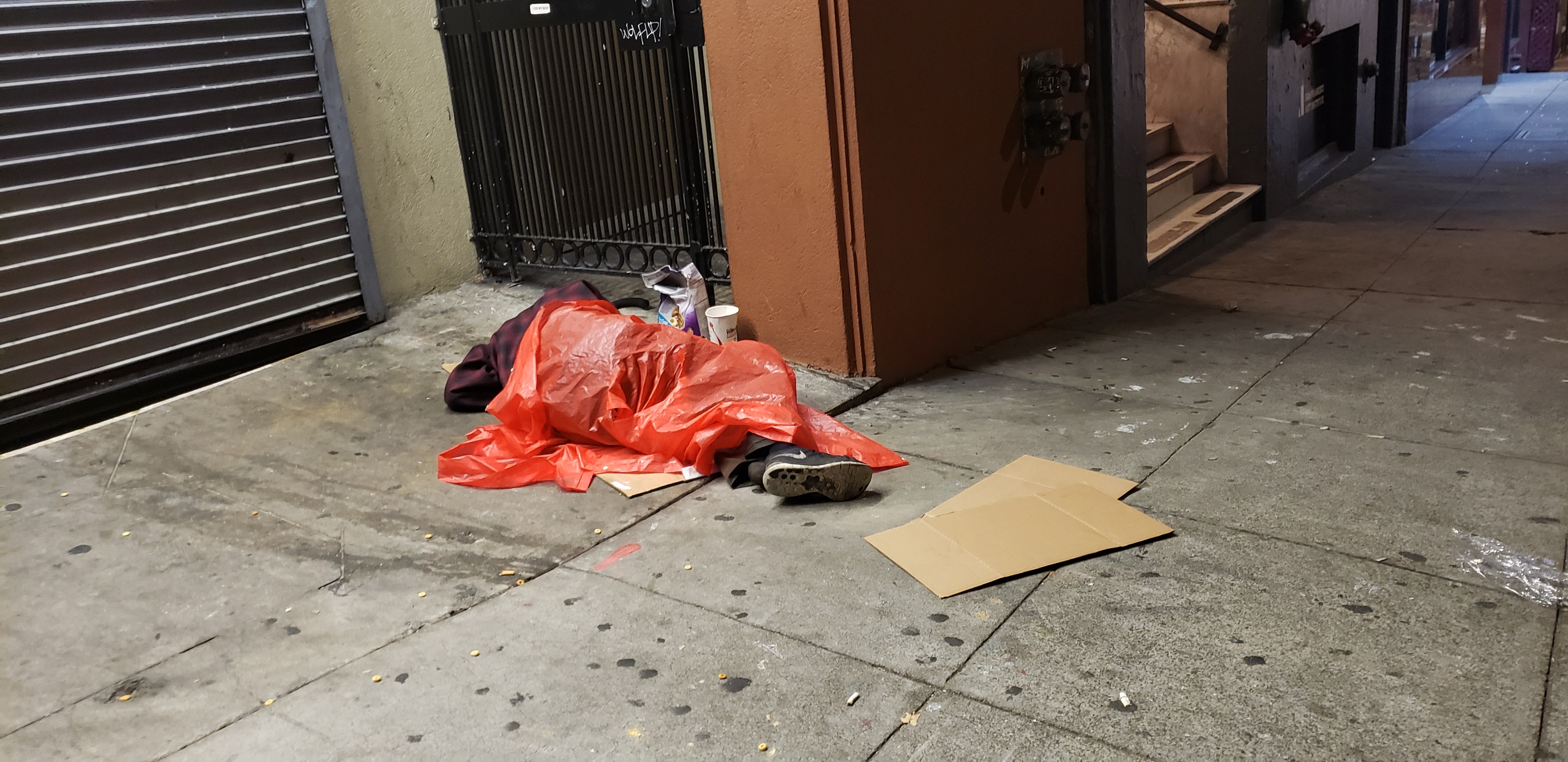
By David M. Greenwald
Executive Editor
Last week, the US Supreme Court announced that they would be taking up the Grants Pass case on whether local governments can sweep homeless encampments.
The case is clearly one of the ones to watch this term and it presents some unique bedfellows and adversaries.
As we have noted, Governor Gavin Newsom and the state want the ability to clear the encampments as a way to address the still expanding homeless problem in California.
“California has invested billions to address homelessness, but rulings from the bench  have tied the hands of state and local governments to address this issue,” said Newsom in a statement on Friday.
have tied the hands of state and local governments to address this issue,” said Newsom in a statement on Friday.
The governor back in September was more pointed, “While I agree with the basic principle that a city shouldn’t criminalize homeless individuals for sleeping outside when they have nowhere else to go within that city’s boundaries, courts continue to reach well beyond that narrow limit to block any number of reasonable efforts to protect homeless individuals and the broader public from the harms of uncontrolled encampments. It’s time for the courts to stop these confusing, impractical and costly rulings that only serve to worsen this humanitarian crisis.”
However, homeless advocates take the opposite approach: “Today’s decision could upend decades of established Supreme Court precedent, and reopen a definition of cruel and unusual punishment that protects Americans, housed and unhoused, from unconstitutional treatment in the criminal legal system. The Grants Pass case questions whether governments can jail people simply for the crime of being too poor to afford housing.”
The criminalization of the homelessness is not some theoretical construct.
As UC Berkeley Dean Erwin Chemerinsky noted in his op-ed this past weekend in the LA Times, “There is every reason to fear that the conservative justices will allow governments to criminalize sleeping in public spaces even if people have nowhere else to go.”
The city of Grants Pass invoked a local ordinance that says, “No person may sleep on public sidewalks, streets, or alleyways at any time as a matter of individual and public safety.”
It goes further, prohibiting homeless people from using blankets, pillows or cardboard boxes for protection from the elements.
As Chemerinsky explains, a panel of the 9th Circuit declared this unconstitutional, “concluding that the government can’t punish people criminally or civilly for being unhoused or for having bedding materials.”
The court relied on a 2018 9th Circuit ruling, Martin v. Boise, which held that the 8th Amendment protection against cruel and unusual punishment “prohibits the imposition of criminal penalties for sitting, sleeping, or lying outside on public property for homeless individuals who cannot obtain shelter.”
Martin never went to the Supreme Court, but Chemerinsky noted, “When the entire 9th Circuit Court of Appeals narrowly declined to review its panel’s decision in the latter case, the court’s Republican-appointed judges vehemently dissented and could not have been more emphatic in urging Supreme Court review.”
They will get support not only from Governor Newsom, but also city attorneys in Los Angeles and San Francisco.
Writes Chemerinsky, “It’s understandable that these officials want more power to deal with the problem of homelessness. But the solution can’t be punishing or criminalizing homeless people.”
Homelessness may be a national problem—but unsheltered homelessness is a California problem. Nearly half the nation’s unsheltered homeless population resides in California.
“The 9th Circuit got it exactly right,” Chemerinsky continues. “Every human being must sleep. If there isn’t enough housing or shelter for the people who live in a city — as is the case throughout California — people have no choice but to sleep on sidewalks and in parks and use blankets and cardboard for warmth.”
It would be one thing if Governor Newsom were coupling the ability to clear homeless encampments with resources and funding to house the unhoused. But advocates have long complained that the state’s commitment—even as it increased in recent years—is insufficient. That figures to only get worse with the state’s burgeoning budget crisis.
Chemerinsky argued, “It is cruel and unusual to punish people for conduct they can’t avoid.”
Ninth Circuit Judge Marsha Berzon explained, it’s unconstitutional to punish “simply sleeping somewhere in public if one has nowhere else to do so.”
This doesn’t attempt to minimize the problem of dealing with the homeless. Instead it seeks to find a more humane solution.
For Chemerinsky, we should look toward some of the policies of Los Angeles Mayor Karen Bass, saying that “governments can address this problem without using the penal code.”
He adds, “It’s worth noting that the 9th Circuit explicitly recognized the right of cities to clear encampments and prevent the use of tents on public property. Most important, states, counties and cities must find ways to provide enough housing and shelter.”
Chemerinsky concludes, “I worry, however, that the conservative justices will choose to empower governments to use criminal laws against their unhoused people and narrow the protections of the 8th Amendment in doing so. It won’t reduce homelessness or make it go away, but it will diminish everyone’s constitutional rights.”
This is the real danger. As of right now, as Chemerinsky points out, we have the ability to clear homeless encampments if we have a place to put the people. The fear is that the Supreme Court would decouple the clearing of the encampments from that provision.


